Search Results
Showing results 1 to 20 of 36
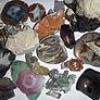
Mineral Scavenger Hunt
Source Institutions
In this activity, learners participate in a scavenger hunt, searching for and recognizing minerals and products that contain minerals.

Make a Sun Clock: Tell Time with the Sun
Source Institutions
Before there were clocks, people used shadows to tell time. In this outdoor activity, learners will discover how to tell time using only a compass, a pencil, a handy printout, and a sunny day.

Shell Shifts
Source Institutions
Ocean acidification is a big issue due to the amount of carbon dioxide humans release. CO2 in the atmosphere is absorbed into the ocean thus changing its acidity.

Measuring Wind Speed
Source Institutions
In this indoor and/or outdoor activity, learners make an anemometer (an instrument to measure wind speed) out of a protractor, a ping pong ball and a length of thread or fishing line.

Earth's Water: A Drop in Your Cup
Source Institutions
This creative lesson plan provides a visual way for learners to gain knowledge about the finite amount of fresh water on Earth and encourages the discussion of the various ways to conserve this resour

3-2-1 POP!
Source Institutions
In this physics activity, learners build their own rockets out of film canisters and construction paper.

Washing Air
Learners observe and discuss a simple model of a wet scrubber, a device for cleaning industrial air pollution.
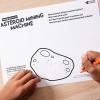
Exploring the Solar System: Asteroid Mining
Source Institutions
In this activity, learners will imagine the challenges and opportunities of asteroid mining.
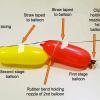
Achieving Orbit
Source Institutions
In this Engineering Design Challenge activity, learners will use balloons to investigate how a multi-stage rocket, like that used in the Interstellar Boundary Explorer (IBEX) mission, can propel a sat

The Shadow Knows II
Source Institutions
In this activity, learners will measure the length of a shadow and use the distance from the equator to calculate the circumference of the earth.
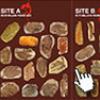
Prehistoric Climate Change
Source Institutions
In this online interactive, learners use fossils to infer temperatures 55 million years ago, at the sites where the fossils were found.
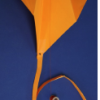
Kites
Source Institutions
In this engineering/design activity, learners make a kite, fly it, and then work to improve the design. Learners explore how their kite design variations affect flight.

What Causes Wind?
Source Institutions
In this sunny day experiment, learners measure and compare how quickly light and dark colored materials absorb heat.
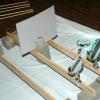
Glass and Mirrors: An Inside Look at Telescopes
Source Institutions
This hands-on astronomy activity allows you to create a “cutaway” telescope to clearly show how reflector and refractor telescopes work.

Hanford at the Half-Life Radiation Calculator
Source Institutions
This quiz lets you estimate your annual radiation exposure.

Cook Up a Comet
Source Institutions
In this activity (on page 5 of PDF), learners use dry ice and household materials to make scientifically accurate models of comets.
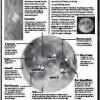
Observing the Moon
Source Institutions
Use this Moon Map Guide to help learners identify features on the Moon, while looking through a telescope.

Mint Your Own Coin
Source Institutions
Coins are everyday objects which tell a lot about the people who use them.

Locating a Point
Source Institutions
In this activity, learners work in teams to simulate the process used by Global Positioning Systems (GPS) to determine the location of a fallen meteorite in Antarctica.

The Best Dam Simulation Ever
Source Institutions
This online simulation game explores the different consequences of water levels on the Columbia River in the Pacific Northwest.
